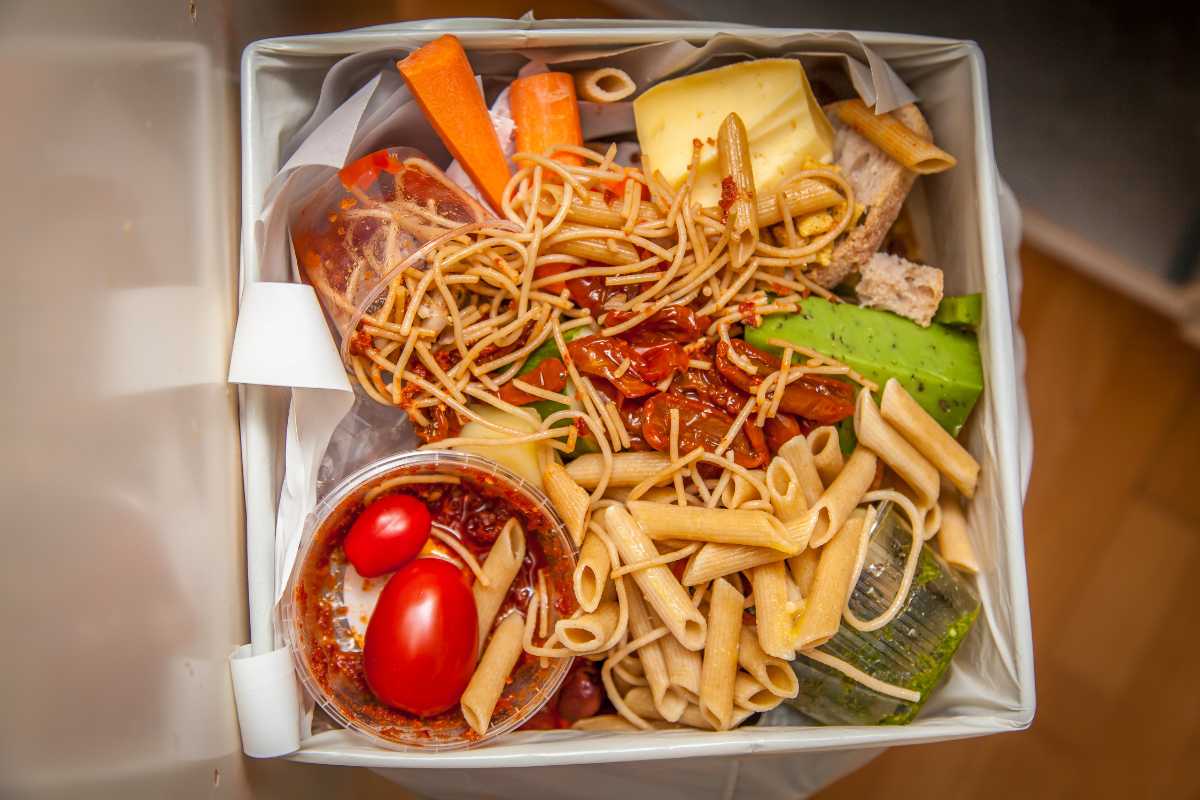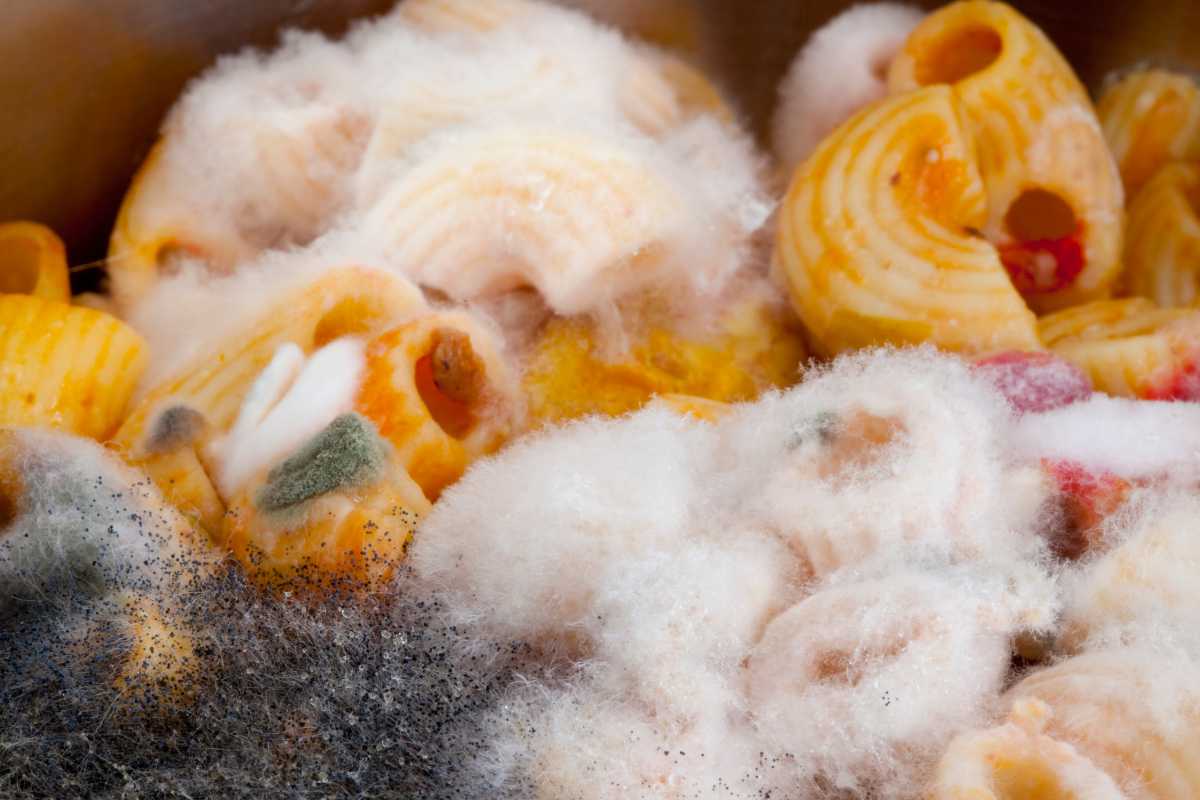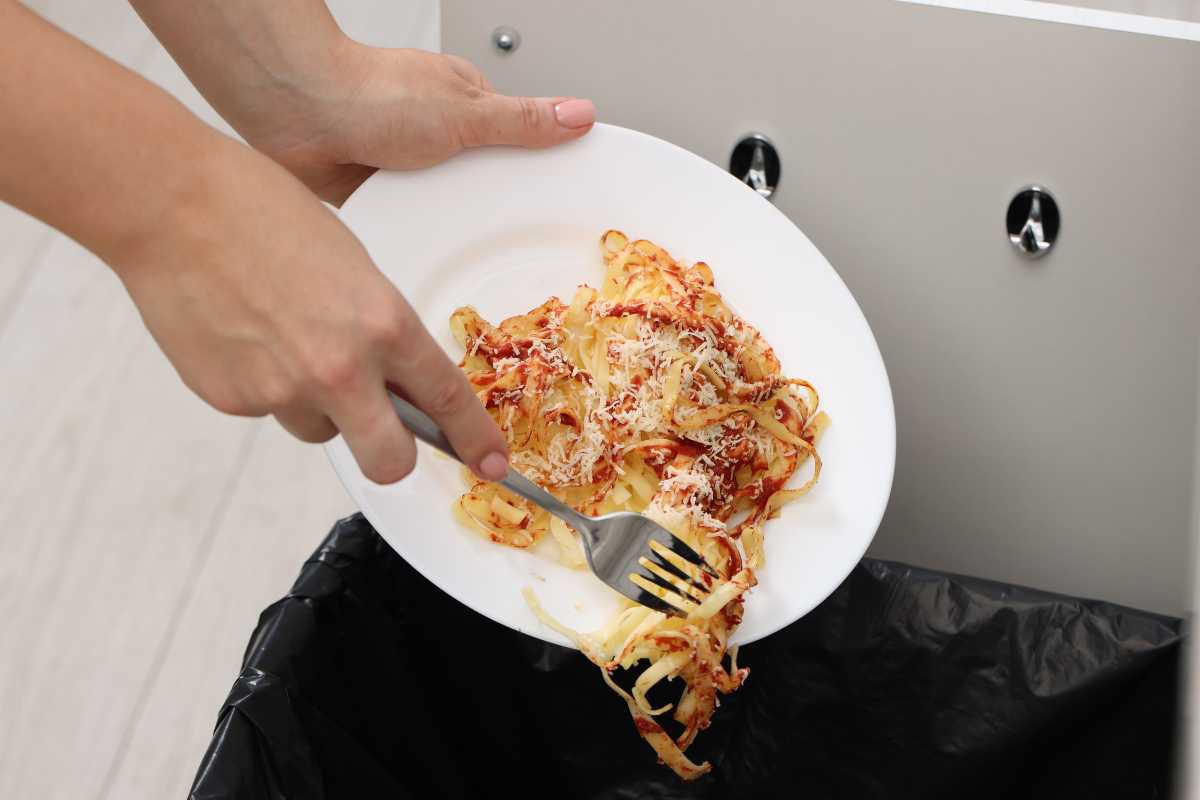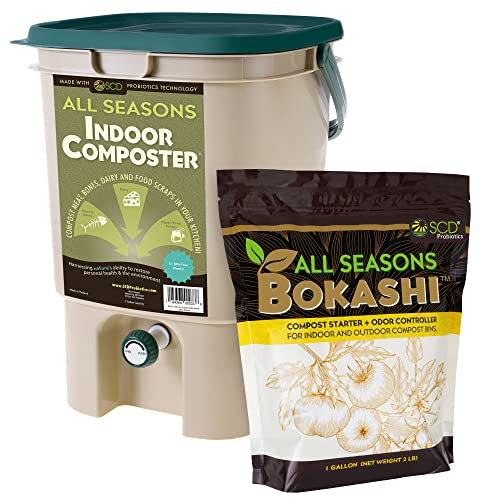There is a lot of debate over whether pasta can be composted, and the answer entirely depends on who you ask. Personally, I never compost pasta or any cooked food. I have an open-air compost pile, and adding cooked food to it will undoubtedly attract rats and other scavengers.
Some people maintain that you can compost uncooked pasta, as it will not attract pests and it decomposes pretty quickly. However, as dry pasta lasts for a year, I can’t see there ever being a need to compost instead of eating it!
In this article, I will go through the various possibilities when considering pasta will be good as compost.
Can You Compost Cooked Pasta?

Like most cooked food, cooked pasta will probably attract pests when added to an open-air composter. It will also create bad smells when decomposing.
Some gardeners say that you can still add cooked pasta to a compost heap if you dig it in and completely cover it with carbon-rich material, because pasta is nitrogen-rich material. However, I would refrain from doing this as rats and other vermin can easily dig through your compost to uncover tasty treats!
That being said, there are a few composting systems available that can successfully compost cooked pasta. I have detailed these at the end of the article.
Can You Compost Moldy Pasta?

Mold in itself is not bad for your compost. In fact, mold is the first sign of decomposition, so that’s good.
The problem is, moldy cooked starchy foods like pasta can still attract pests. This is the main reason that people do not put cooked food items on their compost pile.
However, there is an option to turn cooked food into compostable materials. You can get sealed, anaerobic composting systems that will eliminate any issues with pests or smells associated with composting cooked pasta.
Can You Compost Pasta Sauce?
Pasta sauce has the same issues as cooked pasta. If there is meat in the sauce, you add harmful bacteria to your problems when composting it.
But if you do want to compost pasta sauce, I’ll cover how to compost the pasta sauce, so you have less issues. You’ll also need to consider the type of pasta sauce you have leftover, and the ingredients that were used in the sauce.
First off though, unless you’re composting a large quantity of pasta sauce, most of this won’t matter too much as long as you cover the sauce well in the pile. That will help to prevent pests.
Let’s get into the different pasta sauces and their ingredients:
- Tomato Pasta Sauce – Tomatoes are acidic in nature, so putting too much of it in compost can harm the store. You shouldn’t need to worry too much unless you run an Italian restaurant and have buckets of leftover tomato sauce.
- Creamy Pasta Sauce – Dairy products like milk are usually a main ingredient for creamy sauces, so it’s not recommended to add creamy sauces to compost.
- Oil-Based Pasta Sauce – Add oily pasta sauce like pesto is not recommended either. Oil reduces airflow, which slows down the decomposition process. The chemical structure of oil is complex and doesn’t break down for a long time. Small amounts should be fine to compost, but don’t add large amounts of oily sauces.
Can You Compost Macaroni and Cheese?
Composting macaroni and cheese is viewed in the same way as composting any other cooked food. It also contains cheese which is also usually on the list of items you shouldn’t compost.
For more about composting cheese, see my other article, “Can I Compost Cheese?“
Historically, leftover cooked food would have been given to pigs and other animals to eat rather than be composted. As it attracts scavengers, traditional gardeners will not compost cooked food.
Nevertheless, there are new composting systems that will enable you to compost many items that are conventionally not added to composters.
How to Compost Pasta

Cooked pasta and sauces should not be added to an open-air compost heap or tumble composters. Only put cooked food like pasta in composters that are explicitly intended to compost these items. However, you can add cooked pasta and other cooked foods to a wormery.
There are four composting systems available if you want to turn cooked pasta into compost.
Unlike traditional compost heaps, they can be pretty price, but it may be worth the investment if you are composting a lot of food waste rather than garden waste.
The Bokashi System
The Bokashi System composts foods anaerobically and ferments them to destroy any bacteria and pathogens. As it is sealed, any issues with odors or pests are prevented. You bury the waste after the fermentation process, so it is often used alongside the compot system.
The Compot
Compot compost bins involve burying the waste in a bucket with holes to allow insects access. Like the other systems on this list, the food scraps are not accessible to scavengers, and you won’t get any odors.
Hotbin Composter
The hotbin is also an anaerobic composting method, meaning composting without air, similar to black bag composting.
This system seals out oxygen, so it can be used to compost food like pasta and other cooked food. It will keep pests out and seal bad smells in. The high temperature also will kill any harmful bacteria that might be in the food.
Electric Composter
Electric composters also use heat to break down foods like pasta that would not usually be added to a compost bin. It’s not a good composter if you have tons of food waste.
They will significantly speed up the decomposition process for kitchen waste. Electric composters can take from two hours to two weeks to turn food scraps into finished compost.
These composters are the most expensive composting systems, but if you are only planning on composting a small amount of food, vegetable scraps, they are probably the most efficient system on the list.
Composting Pasta Final Thought
I don’t usually add pasta in compost because it’s been cooked and the sauces, but it’s still an option. It’s still possible to maintain a healthy compost pile.
Pasta is nitrogen-rich, so it’s considered a green material for compost. Be sure to balance out green materials with brown material to help absorb excess moisture.
To learn more about composting other materials, check out these articles:



